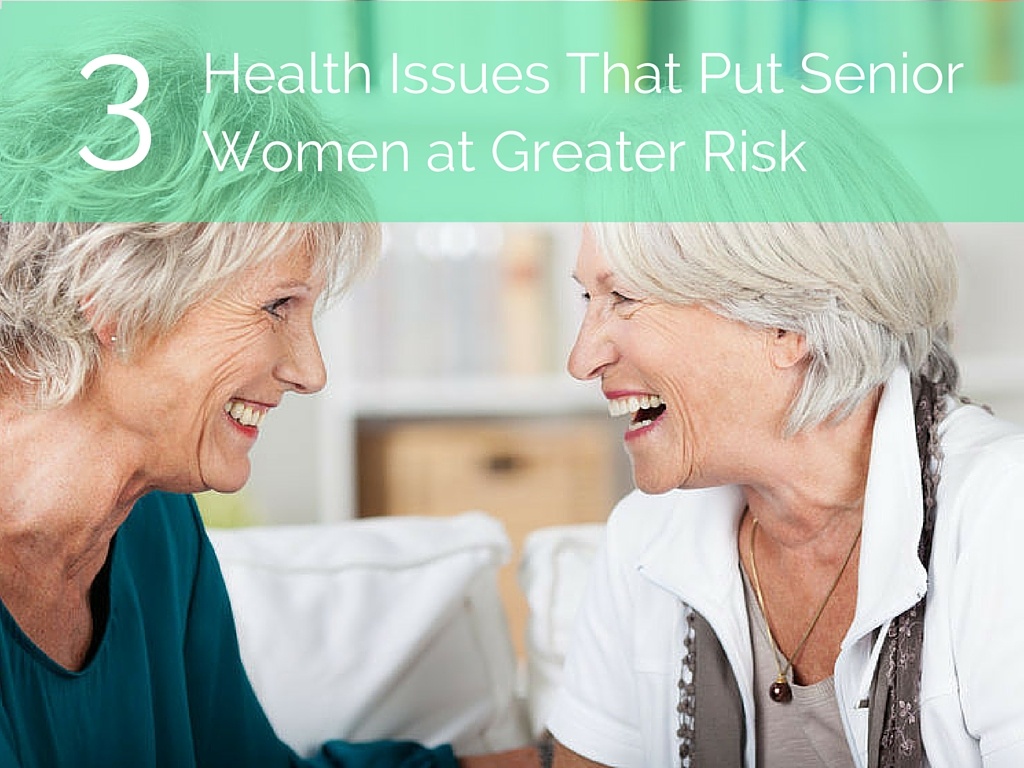
If each of us could choose to write our own stories, chances are that most would include some version of "happily ever after"—living long lives, remaining active, and being healthy throughout our years. While we can’t determine all aspects of destinies, there are specific actions that everyone can take to decrease the risk of diseases that threaten our wellbeing. Those preventive measures are particularly important for older women.
It is important to know the signs and symptoms of common diseases and to seek medical attention when "something doesn't feel right." Leading physicians recommend taking practical measures to ensure continued good health throughout the golden years:
- Know your own family history
- Know your body
- Know basic symptoms of the conditions that plague older women
What are the primary areas of concern?
In addition to breast cancer and autoimmune disease, the medical community says there are three primary diseases that afflict older women in disproportionate numbers. They might not be totally preventable, but they can all be controlled with early diagnosis and proper treatment.
1. Heart Disease
Heart disease is a killer for both sexes. But, according to Cindy Pearson, executive director of the Women's Health Network, the "real problem is premature death and disability." Heart attack symptoms can be more subtle in women, but a first heart attack is often more serious. And although heart disease accounts for about 29 percent of female deaths, the signs of heart disease often go ignored or unrecognized. Women are more likely to delay seeing their doctor or to minimize the discomfort they feel. And signs like shortness of breath, persistent shoulder aches, nausea, vomiting, and jaw pain aren’t the typically recognized signs of heart attack.
Even doctors sometimes miss symptoms, so it's up to you to keep asking questions. It is better to see a doctor because of small aches or "silly" concerns than to recover in a hospital bed after a heart attack. The key is to know your body and recognize any "malfunctions." Keep your blood pressure and cholesterol levels under control, maintain a proper weight or lose weight, start an exercise program if you don't lead an active lifestyle, eat a healthy diet, and laugh as often as you can. In this case, laughter really can be good medicine.
2. Osteoporosis
"Shrinking" used to be considered a normal fact of aging. Today, not so much. The medical community recognizes that osteoporosis, or the loss of bone mass that can begin in the 30s, is largely preventable. However, even if you measure shorter today than you did at 25, you aren’t doomed to becoming stooped and frail. Your body can actually work to repair bone damage if you give it the proper "nudge," including adequate calcium and Vitamin D, proper exercise, moderate alcohol consumption and no smoking.
White and Asian women are at greatest risk, and genes play a part, as do some medications. Talk to your doctor about your concerns and ask about beneficial exercise, including yoga or pilates.
3. Depression
Clinical depression is not strictly a women's disease, but research has shown that nearly twice as many women suffer from a depressive disorder than men. Once again, family history can signal the tendency, but heart disease, chronic illness, marital problems or a lifestyle change can also trigger depression. Serious illness or death of a loved one can be traumatic, leading to isolation and depression.
Close relationships with other people are the best antidote to depression. Social activities, volunteer work, hobbies and maintaining the associations that give you pleasure and "get you up each morning" are vital for mental and physical health.
They are also the story lines that will contribute to a permanent sense of wellbeing, whatever your age.












